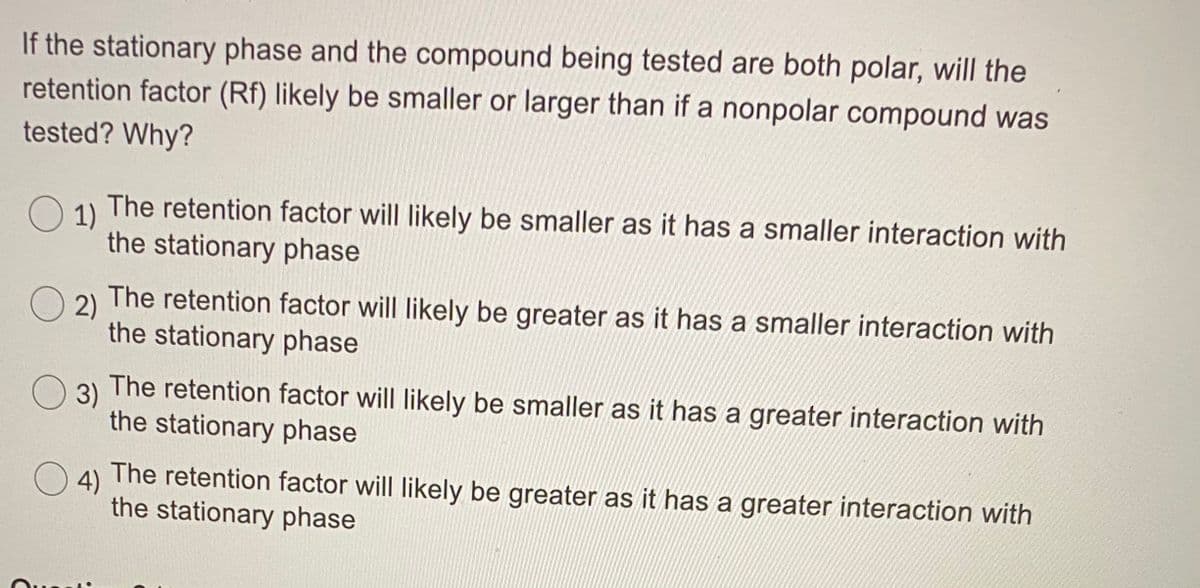If the stationary phase and the compound being tested are both polar, will the retention factor (Rf) likely be smaller or larger than if a nonpolar compound was tested? Why? The retention factor will likely be smaller as it has a smaller interaction with O 1) the stationary phase 2) The retention factor will likely be greater as it has a smaller interaction with the stationary phase 3) The retention factor will likely be smaller as it has a greater interaction with the stationary phase 4) The retention factor will likely be greater as it has a greater interaction with the stationary phase
If the stationary phase and the compound being tested are both polar, will the retention factor (Rf) likely be smaller or larger than if a nonpolar compound was tested? Why? The retention factor will likely be smaller as it has a smaller interaction with O 1) the stationary phase 2) The retention factor will likely be greater as it has a smaller interaction with the stationary phase 3) The retention factor will likely be smaller as it has a greater interaction with the stationary phase 4) The retention factor will likely be greater as it has a greater interaction with the stationary phase
Chapter16: Data Processing With Excel
Section: Chapter Questions
Problem 4P
Related questions
Question

Transcribed Image Text:If the stationary phase and the compound being tested are both polar, will the
retention factor (Rf) likely be smaller or larger than if a nonpolar compound was
tested? Why?
1)
The retention factor will likely be smaller as it has a smaller interaction with
the stationary phase
O 2)
The retention factor will likely be greater as it has a smaller interaction with
the stationary phase
O3)
The retention factor will likely be smaller as it has a greater interaction with
the stationary phase
4)
The retention factor will likely be greater as it has a greater interaction with
the stationary phase
Expert Solution
This question has been solved!
Explore an expertly crafted, step-by-step solution for a thorough understanding of key concepts.
This is a popular solution!
Trending now
This is a popular solution!
Step by step
Solved in 2 steps

Knowledge Booster
Learn more about
Need a deep-dive on the concept behind this application? Look no further. Learn more about this topic, chemistry and related others by exploring similar questions and additional content below.Recommended textbooks for you



EBK A SMALL SCALE APPROACH TO ORGANIC L
Chemistry
ISBN:
9781305446021
Author:
Lampman
Publisher:
CENGAGE LEARNING - CONSIGNMENT



EBK A SMALL SCALE APPROACH TO ORGANIC L
Chemistry
ISBN:
9781305446021
Author:
Lampman
Publisher:
CENGAGE LEARNING - CONSIGNMENT

Principles of Instrumental Analysis
Chemistry
ISBN:
9781305577213
Author:
Douglas A. Skoog, F. James Holler, Stanley R. Crouch
Publisher:
Cengage Learning